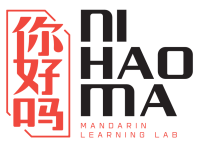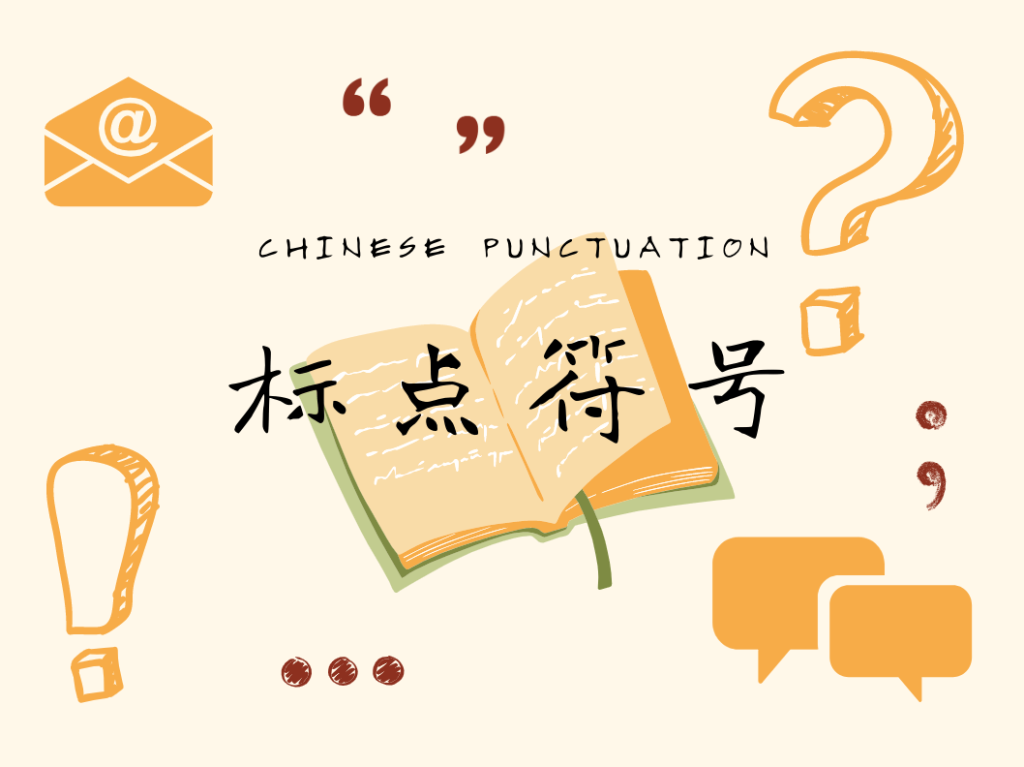Welcome to our comprehensive guide on preparing for the Test of Chinese as a Foreign Language (TOCFL). Whether you’re a student aiming to study in a Chinese-speaking country, a professional seeking to enhance your career prospects, or simply passionate about Mandarin learning, achieving a strong score on the TOCFL can open doors and validate your Chinese language skills. However, navigating the intricacies of the exam and achieving your desired score requires a well-structured study plan. This comprehensive guide will equip you with the knowledge and strategies to craft your personalized roadmap for TOCFL success.
- Why a Study Plan Matters?
- What is TOCFL?
- Assessing Your Current Level
- Designing Your Study Plan: Roadmap to Success
- Embrace Effective Study Habits
- Your TOCFL Success Story Awaits
- Ready to take the next step on your TOCFL journey?

Why a Study Plan Matters?
While raw talent and language aptitude can play a role, consistent and focused preparation is the key to mastering the TOCFL. A well-defined study plan acts as your blueprint, outlining your goals, timelines, and strategies. It ensures you allocate time effectively, prioritize areas that need improvement, and stay on track towards exam day. By strategically planning and utilizing your study time, you’ll maximize your potential and approach the TOCFL with confidence.
What is TOCFL?
Before embarking on your study journey, it’s crucial to familiarize yourself with the TOCFL’s structure and format.
| Skill | Level | Time for exam-taking |
| Listening | Band A | 60 min |
| Band B | 60 min | |
| Band C | 60 min | |
| Reading | Band A | 60 min |
| Band B | 60 min | |
| Band C | 60 min | |
| Writing | Band A | 40 min |
| Band B | 100 min | |
| Band C | 170 min | |
| Speaking | Band A | 2 min 45 sec |
| Band B | 6 min | |
| Band C | 16 min |
The TOCFL is a standardized test designed to assess the Chinese language proficiency of non-native speakers. It consists of multiple levels, ranging from Band A (Beginner) to Band C (Advanced), each targeting different proficiency levels. The exam offers various levels (CEFR equivalent):
| Test Levels | Test Results | CEFR | Learning hours | Vocabulary base |
| Band A | Level 1 | A1 | 240 – 480 | 500 |
| Level 2 | A2 | 480 – 720 | 1000 | |
| Band B | Level 3 | B1 | 720 – 960 | 2500 |
| Level 4 | B2 | 960 – 1920 | 5000 | |
| Band C | Level 5 | C1 | 1920 – 3840 | 8000 |
| Level 6 | C2 | More than 3840 |
Each level assesses your proficiency in four key language skills: listening, reading, writing, and speaking with varying weights assigned to each section. Understanding the exam structure, format, and scoring criteria is essential for effective preparation. This information is readily available on the official TOCFL website and can help you identify the areas that require the most attention.
Assessing Your Current Level
Before tailoring a study plan, it’s crucial to assess your current level of Chinese proficiency. Here are some effective methods for self-assessment:
- Online Placement Tests: Several websites offer free online placement tests that gauge your reading, listening, vocabulary, and grammar skills. These tests can provide a general estimate of your current level.
- Practice Tests: Downloading or purchasing practice tests specifically designed for your chosen TOCFL level can simulate the actual exam format and pinpoint areas where you need additional work.
- Textbook Chapter Reviews: Revisit earlier chapters in your current Chinese language textbook or course. Can you confidently translate the vocabulary and understand grammar points?
- Self-reflection: Honestly evaluate your comfort level with daily conversations, reading comprehension, and written communication in Mandarin Chinese.
Identify your strengths and weaknesses in each language skill, as well as your overall readiness for the TOCFL exam, you can allocate study resources strategically and prioritize aspects that require more focus. Setting realistic goals based on the proficiency requirements of your target TOCFL level will guide your study plan and help you track progress effectively. Remember, a realistic assessment ensures your study goals are achievable and motivates you through your preparation journey.
Designing Your Study Plan: Roadmap to Success
Now comes the exciting part – crafting your personalized TOCFL study plan! A well-structured study plan is the foundation of successful TOCFL preparation. Here’s a breakdown of key aspects to consider:
Clear Study Goals
- Begin by defining your specific objectives for TOCFL preparation. Determine the TOCFL level you aim to achieve and the proficiency goals for each language skill (listening, reading, writing, speaking).
- Break down your objectives into manageable tasks and milestones, such as mastering certain vocabulary lists, improving listening comprehension, or enhancing writing skills.
Realistic Timeline
- Create a realistic timeline for your TOCFL preparation, taking into account factors such as your current proficiency level, study schedule, and the date of the exam.
- Divide your preparation timeline into distinct phases, with milestones and checkpoints along the way to track your progress.
- Allocate sufficient time for each phase of preparation, ensuring that you have ample opportunity to review and reinforce your knowledge and skills.
Let’s say you’re aiming for a score of 600 on the TOCFL Level 3, which is scheduled for six months from now. Divide the six months into manageable chunks, perhaps monthly milestones.
Skill Allocation
- Divide your study time proportionally between practicing listening, reading, writing, and speaking.
- Aim for a balanced approach, but also consider your strengths and weaknesses.
- Dedicate specific study sessions to practicing listening comprehension, reading comprehension, writing essays, and speaking exercises. For example, if you struggle with listening comprehension, allocate slightly more time to listening exercises. Here’s a possible time allocation example for a total of 20 hours of weekly study:
- Listening: 6 hours
- Reading: 5 hours
- Writing: 4 hours
- Speaking: 5 hours
Resource Selection
- Explore a variety of learning materials to fit your preferred learning style.
- Utilize a variety of resources.
- Consider the credibility and reliability of each resource.
- Textbooks like the “New Practical Chinese Reader” series provide a structured foundation in grammar and vocabulary.
- Audio lessons from apps like ChinesePod or Yoyo Chinese can improve your listening skills.
- Online courses on some platforms like Coursera and edX offer interactive learning experiences with video lectures and quizzes.
- Mobile apps like Duolingo and HelloChinese allow you to practice vocabulary and grammar on the go.
- Live online classes to have proper academic guidance from certified native teachers at Ni Hao Ma.
- Seeking recommendations from peers who have successfully prepared for the TOCFL exam.
- Don’t neglect authentic resources like Chinese movies with subtitles, podcasts like Slow Chinese, and music by artists like Jay Chou.
Immerse yourself in the language as much as possible by surrounding yourself with Chinese content that interests you.
Practice Makes Perfect!
Schedule regular practice tests throughout your study period. Aim for at least one full-length practice test every month. Consider using the Pomodoro Technique to structure your practice sessions. This technique involves working in focused 25-minute intervals with short breaks in between. This approach can enhance concentration and prevent burnout. This builds familiarity with the exam format and helps identify areas needing further improvement.
Embrace Effective Study Habits
Now that you have a structured plan and diverse resources, let’s delve deeper into effective study strategies to maximize your learning potential:
Champion Active Learning
- Flashcards: Utilize flashcards for memorizing vocabulary and grammar points. Use spaced repetition systems like Anki to optimize review schedules and solidify learning.
- Language Learning Apps: Many language learning apps offer interactive exercises, gamified activities, and spaced repetition systems. Utilize these apps to practice vocabulary, grammar, and pronunciation while keeping your learning engaging.
- Conversation Practice: Find a language exchange partner or join online language communities to practice real-time speaking. Conversation partners can be fellow students or native speakers willing to engage in language exchange. Utilize platforms like HelloTalk or Tandem to connect with language partners.
Craft a Conducive Study Environment
- Minimize Distractions: Choose a quiet study space free from interruptions like television, loud music, or notifications on your phone. Utilize noise-canceling headphones if necessary.
- Organize Your Workspace: Keep learning materials organized and easily accessible. A clutter-free study space can improve focus and concentration.
Maintain Consistency and Discipline
- Develop a Routine: Schedule dedicated study sessions into your daily or weekly calendar. Treat these study sessions with the same importance as other essential commitments.
- Embrace Consistency: Aim for regular, shorter study sessions rather than sporadic long stretches. Consistent practice reinforces learning and builds long-term memory.
- Reward Yourself: Celebrate milestones and achievements throughout your study journey. This helps maintain motivation and keeps you focused on your goals.
Seek Support and Feedback
- Tutors: Consider hiring a Mandarin Chinese tutor who can provide personalized guidance, address specific weaknesses, and offer study tips.
- Study Groups: Joining a study group with fellow TOCFL aspirants can foster a sense of accountability and provide opportunities to discuss challenges, share resources, and practice conversation skills.
- Online Communities: Online forums and communities dedicated to TOCFL preparation connect you with other learners who can offer support and share study tips.
Monitoring Progress and Making Adjustments
Throughout your study journey, it’s crucial to track your progress and adjust your plan as needed. Here’s how:
- Track Your Hours: Monitor the amount of time you dedicate to each skill and resource. This helps you gauge your commitment and identify areas where you might need to allocate more time.
- Review Your Results: After practice tests and self-assessments, analyze your performance in each language skill. Did you improve in specific areas? Were there consistent weaknesses?
- Adapt and Refine: Based on your progress and analysis, adapt your study plan accordingly. If you’re struggling with a specific grammar point, dedicating additional time to focused practice on that point may be necessary.
- Celebrate Milestones: Don’t forget to acknowledge your accomplishments! Reaching a desired score on a practice test or achieving a personal goal in conversation fluency deserves a pat on the back. Celebrating these wins keeps you motivated and reinforces positive study habits.
By following these steps and incorporating them into your study plan, you can effectively prepare for the TOCFL exam and increase your chances of success. Remember to stay disciplined, motivated, and proactive in your preparation, and don’t hesitate to seek support and guidance from tutors or study groups as needed. With dedication and perseverance, you can achieve your TOCFL goals and demonstrate your Mandarin proficiency with confidence.
Conclusion: Your TOCFL Success Story Awaits
By crafting a well-structured study plan, employing effective strategies, and consistently dedicating yourself to learning, you can confidently conquer the TOCFL exam. Remember, the journey is just as important as the destination. Embrace the challenges, celebrate your progress, and enjoy the process of acquiring fluency in this beautiful and rewarding language.
We hope this comprehensive guide has equipped you with the tools and knowledge to embark on your TOCFL success story. Don’t hesitate to explore further resources available online, connect with experienced learners, and utilize the support of language learning communities. With dedication and a strategic plan, you’ll be well on your way to achieving your desired TOCFL score and unlocking exciting opportunities in the world of Mandarin Chinese!
Ready to take the next step on your TOCFL journey?
Ni Hao Ma Mandarin Learning Lab offers personalized tutoring designed to support your TOCFL exam preparation. Our experienced tutors can help you:
- Identify and address your specific weaknesses in listening, reading, writing, and speaking.
- Develop effective test-taking techniques to maximize your score.
- Practice with authentic TOCFL exam materials and receive personalized feedback.
Contact Ni Hao Ma today to learn more about our TOCFL exam prep tutoring classes and take the first step towards achieving your Mandarin language goals!



